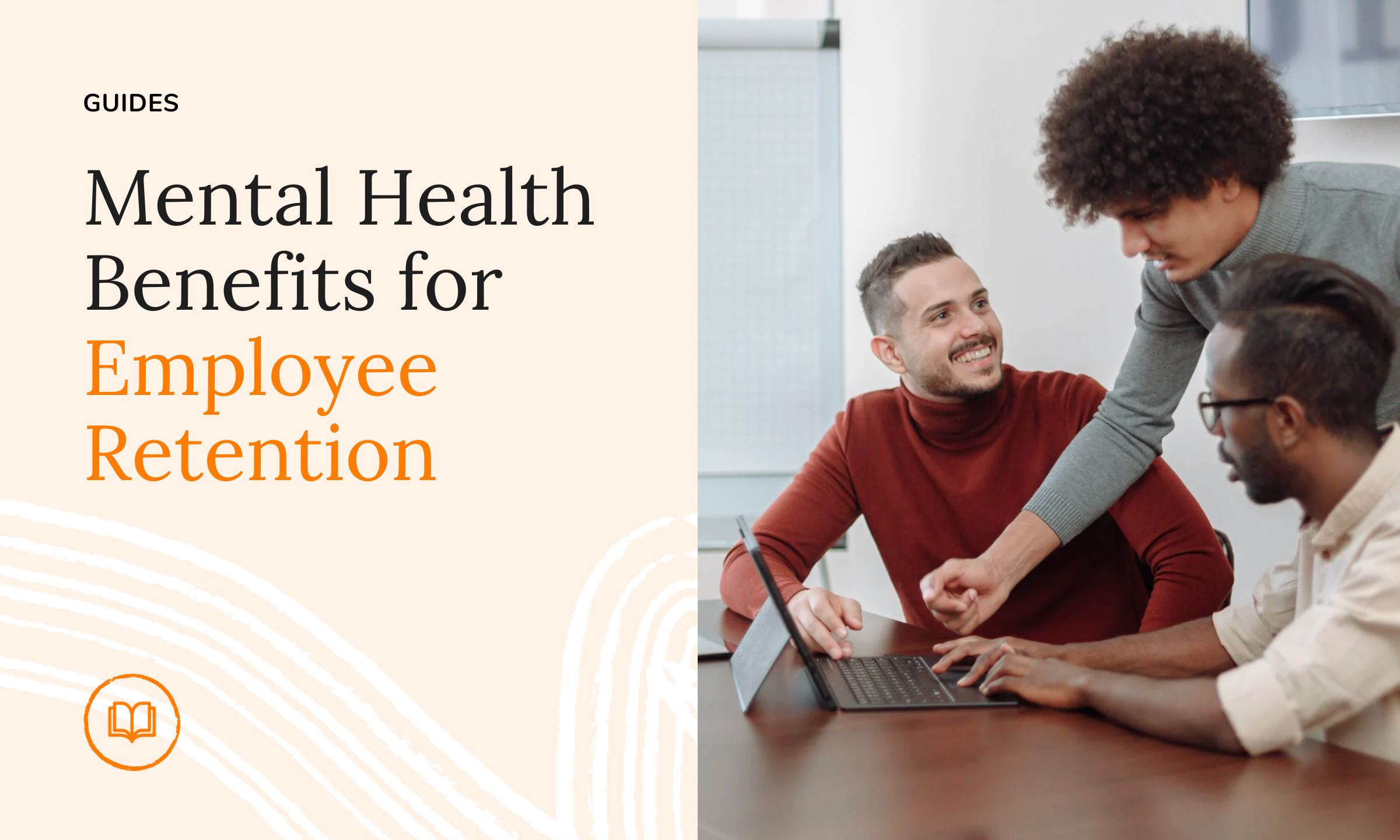It’s no surprise that financial stress affects companies. In difficult economic times, we all feel the toll of financial stress. But the pressure on business success also puts pressure on individual employees – and soon financial stress is ensuring that your company’s team performs worse, instead of spurring them to new innovation.
The past six months have brought with them new challenges on both the global stage and the individual level. After two years coping with the stressors and uncertainties of the pandemic, people’s nerves were already stretched thin.
Now, with rising widespread inflation and geopolitical instability wreaking havoc on supply chains and energy prices, many employees are feeling the pressure of meeting their day-to-day financial needs—and are understandably worried about the future.
How are financial security and mental health connected?
Financial stress is the most common cause of stress worldwide. The special challenge of financial stress—more so than “traditional” mental stress—is that it often permeates all aspects of an employee’s life, not just their working hours. You could call it a “super-stressor”.
The 2022 PwC Employee Financial Wellness Survey found that personal financial issues impact employees physically, emotionally, mentally, and socially.
Among those employees who identified in the survey as financially-stressed, 49% said that money worries had had “a severe or major impact on their mental health in the past year”, 33% said these worries negatively affected their sleep, 30% said their concerns have “significantly affected their self-esteem” while 23% and 20%, respectively, said these had a severe impact on their physical health and their relationships at home.
Additionally, feelings of guilt and shame arising from financial anxiety often cause people to withdraw from social life, potentially leading to depression—and with numerous studies also indicating financial stress is a leading catalyst for suicide.
Mounting pressure on all sides
The PWC survey was conducted this past January and February, before the outbreak of war in the Ukraine; nevertheless, back then already two out of five employees stated that their number one financial pressure was an increase in prices for consumer goods.
This past May, inflation rates reached record post-reunification highs in Germany for the third month in a row, with experts predicting the climb to continue in Germany and elsewhere over the coming months.
The tech industry, where many nilo clients operate, is also facing challenges: market turbulence has led to layoffs at several major companies, among them Netflix, Bird, and Gorillas.
Tech industry news site Protocol reports that, “by late May, the S&P 500, dominated by tech stocks, had lost over 20% of its value since the beginning of the year.” May 2022 was also reportedly the worst month for layoffs for tech workers since the pandemic began.
In total, since the beginning of 2022, at least 33,000 tech company employees worldwide have been made redundant—and unfortunately this is another trend that experts predict will persist in the coming months.
Obstacles to affordable mental health care
According to Marta Poll, psychologist and director of the Catalan Mental Health Federation: “Mental health services have to be agile, accessible, and fast”. That said, an investigation in March 2021 revealed that:
“In at least seven EU countries, people have to wait more than a month for an appointment with a psychologist” and “even in Germany, the EU country with the best ratio of patients to health care personnel, patients have to wait four to five months on average.”
Given the frequent urgency of mental health matters, many individuals turn to expensive private solutions, paying out of their own pockets to circumvent waiting times—in doing so adding to their financial load.
The 2011 publication “Impact of Economic Crises on Mental Health” from the WHO’s Regional Office for Europe, warns that:
“Mental health problems, binge drinking, suicide and (in many countries) alcohol-related deaths tend to increase during economic downturns, creating a need for governments to upgrade mental health action.”
Yet its authors found that such upgrades were unlikely to happen, putting private households under even more pressure. If the 2022 crisis worsens, conditions such as these threaten to further exacerbate the situation for employees in Europe and elsewhere.
Why leaders should take action now
With employees currently facing so many hardships and unknowns and “not feeling optimistic that help is on the way”, it’s more critical than ever for organizations to help shoulder the burden by taking a proactive and preventative approach to mental health.
“Work should be a stabilizing force in people’s lives,” concludes Jim Harter, chief scientist for Gallup’s workplace management practice, discussing the company’s findings on employee engagement and wellbeing.
Given the number of hours people spend at work, the legal “duty of care” employers have for employees’ health, safety and wellbeing, and the rise of workplace mental health awareness and benefit programs, Garter’s assertion shouldn’t take leaders by surprise—nevertheless, it’s clear that some still feel that the responsibility for “personal” matters should lie with employees themselves.
Running counter to this, the Mind Share Partners’ 2021 Mental Health at Work Report found that workers who feel supported by their employer on mental health topics tend to be
“less likely to experience mental health symptoms, less likely to underperform and miss work, [as well as have] higher job satisfaction and intentions to stay at their company.”
On the other side of the coin, PWC found that “money problems can be a big driver of mental health issues that have the potential to directly impact an employer’s bottom line in key areas like productivity, retention, attendance and overall engagement.”
Mental health benefits: a win-win investment
At the best of times, mental health support should be “agile, accessible, and fast”—but tackling a super-stressor like financial stress really requires super-strength solutions, both in terms of speedy response and a sustainable organizational strategy.
The Deloitte study “Mental Health and Employers” identifies the most effective workplace mental health initiatives as those that are “embedded in the organization over the long term and offer a broad spectrum of interventions”. The study recommends employers take a 6-pronged approach:
- Prioritize mental health in the workplace by developing and delivering a systematic program of delivery
- Proactively ensure work design and organization culture drive positive mental health outcomes
- Promote an open culture around mental health
- Increase organizational confidence and capability
- Provide mental health tools and support
- Increase transparency and accountability via internal and external reporting
The ideal complement to in-house measures such as these, nilo.health’s comprehensive suite of services, spanning 1-to-1 video sessions, targeted digital tools and trainings, how-to guides and expert insights on vital topics, have established our reputation as a trusted partner to organizations striving to make mental health support a fundamental value and as well as a key employee benefit.
Our Corporate Sanity Guide outlines a number of concrete tools for introducing and implementing mental health initiatives such as those recommended by Deloitte across your organization.
With workplace mental health interventions by employers yielding an average ROI of 5:1, benefits are undeniably a sound investment, in particular during times of financial uncertainty such as these.
Give employees the powerful resources they need to thrive through thick and thin: contact nilo.health today for your free demo.







